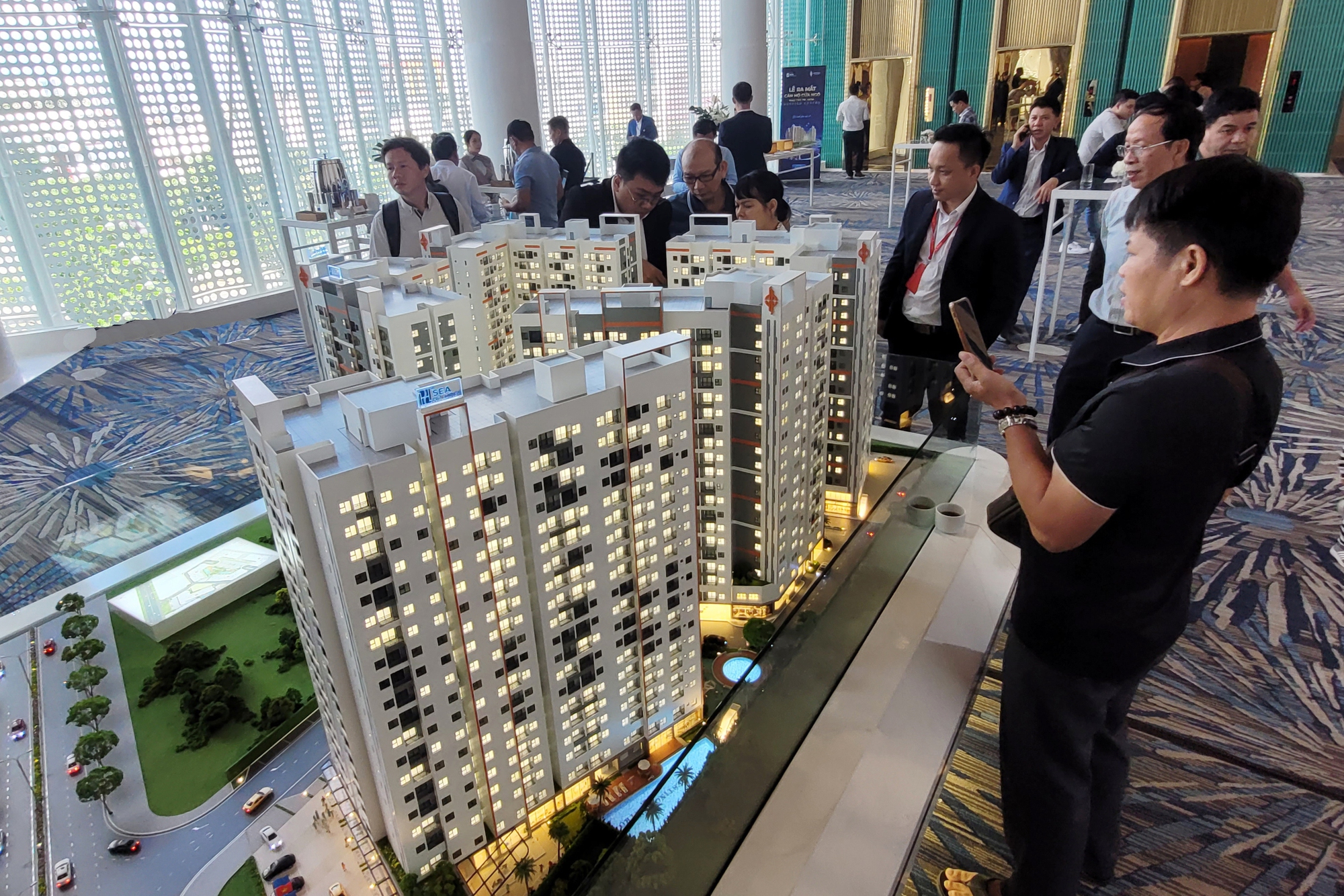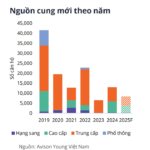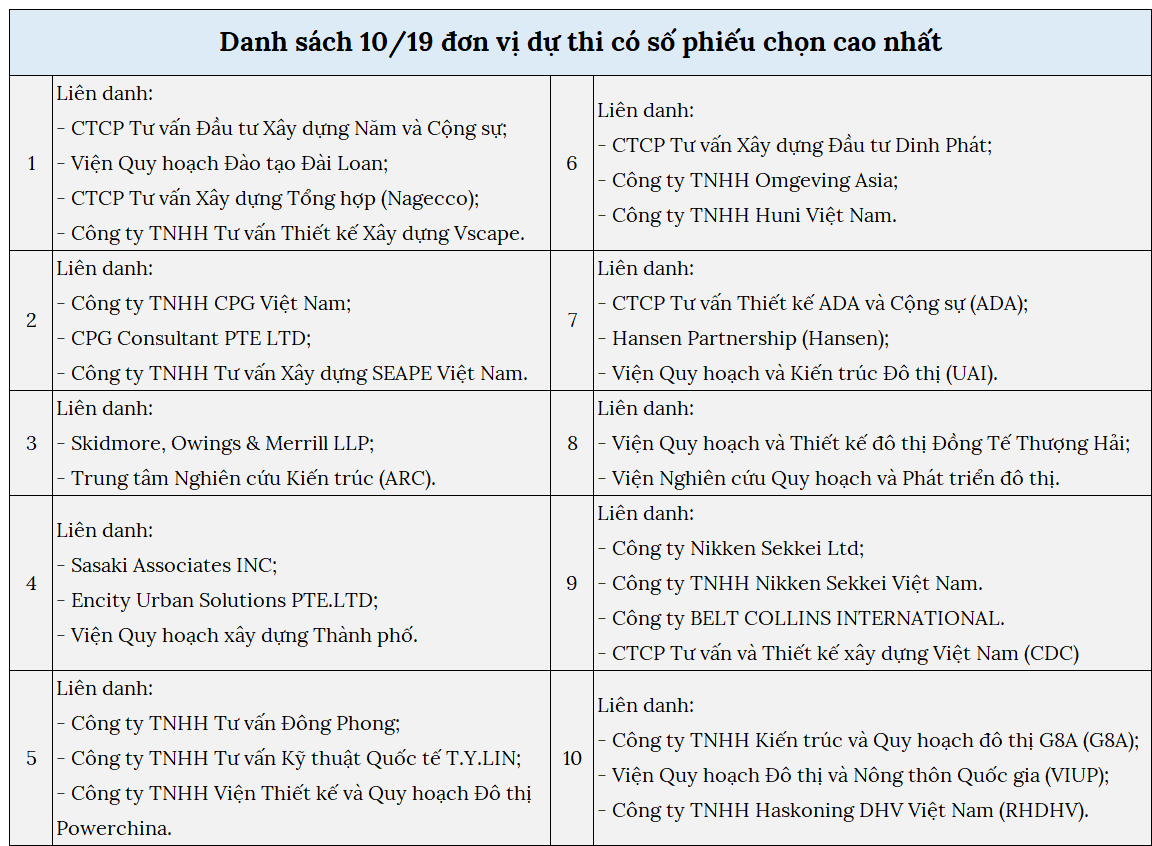The Ho Chi Minh City Department of Construction has issued a directive requiring real estate businesses to strictly comply with legal regulations regarding project information disclosure, transaction reporting, and ownership rights. According to the 2023 Real Estate Business Law and Decree 94, 96/2024/NĐ-CP, companies must disclose project details before marketing, submit transaction reports in both written and electronic formats, and ensure the accuracy of the data provided.
Prohibition of Legal Loopholes and Broker Authorization
Notably, the directive strictly prohibits developers from authorizing any organization or individual to sign deposit, purchase, transfer, or lease agreements for housing or land use rights within their projects. Developers are only permitted to sell or lease future properties after officially notifying state management agencies that the project meets all transaction requirements.
Prior to this directive, numerous projects in Ho Chi Minh City had been marketed through authorized brokers. Many secondary and tertiary brokerages collected deposits from clients, even though the projects lacked construction permits and legal compliance. Several buyers from northern provinces traveled to Ho Chi Minh City to make “good faith deposits” without ever signing contracts directly with the developers.
At a recent project launch, Mrs. Loan (residing in Tan Hung Ward, Ho Chi Minh City) shared that she made a “good faith deposit” of VND 50 million through a brokerage and later paid an additional 10% of the property value, again only through the brokerage firm. “I assumed it was standard procedure, but later I discovered the project wasn’t legally cleared for sales,” she said.
A director of a Ho Chi Minh City real estate firm admitted that many developers have long exploited legal loopholes by authorizing brokerages to collect reservation and deposit fees from clients. This “shortcut” approach, driven by marketing and media campaigns, often leaves buyers interacting solely with brokerages and never directly with developers.
According to economist Dr. Tran Nguyen Dan, the practice of developers exploiting loopholes through brokerages to raise capital has been prevalent for years. “Many projects raise 90-95% of a property’s value before formal sales contracts are signed. Regulatory bodies are aware but fail to act, leading to market distortions, artificial demand, and FOMO (fear of missing out) among buyers,” he analyzed.
He added that this approach not only inflates property prices but also shifts risks onto buyers. In case of issues, buyers typically receive only their deposit back or bank interest, while developers retain control of the funds. “Recent high-profile market incidents serve as stark warnings,” he emphasized.
Meanwhile, the government’s draft resolution on real estate price control mechanisms has also drawn public attention. The proposal suggests that all property transactions must occur through state-managed platforms and imposes tighter credit restrictions on buyers purchasing second or third properties. Additionally, the draft encourages the development of affordable commercial housing and expands the supply of mid-range apartments to meet genuine housing needs.
Mr. Vo Hong Thang, Deputy General Director of Consulting at DKRA Consulting, noted that according to DKRA Group’s survey, 70% of recent project buyers were investors, with 50-60% owning second properties and over 20% holding three or more. However, whether tighter credit measures will reduce speculative demand, cool prices, and stabilize the market remains to be seen.
He predicted that if implemented, bank credit for real estate would slow, potentially reducing market liquidity by 30%. “Speculators will need to reconsider, while genuine buyers will have better access to suitable properties,” he remarked.

Customers explore a real estate project in Ho Chi Minh City. Photo: TAN THANH
Implementing Comprehensive, Long-Term Solutions
Mr. Vo Hong Thang supports property taxation to curb speculation but urges the government and ministries to implement it gradually, with careful planning and timelines, avoiding abrupt changes. “Rapid tightening could trigger strong market reactions, impacting liquidity and overall economic growth, as real estate significantly influences other sectors,” he warned.
Dr. Pham Viet Thuan, Director of the Ho Chi Minh City Institute of Natural Resources and Environment Economics, believes transaction taxes are an effective tool against speculation.
He proposes a holding period-based tax: 20% on sales within 12 months, 10% for 12-36 months, 5% for 36-60 months, and maintaining the current 2% for over 60 months. “This tax should apply to authorized sales to prevent loopholes,” he said.
He argues this approach is simpler and more feasible than mandating online platform transactions, which are currently impractical. “Holding period taxes discourage short-term trading without distorting the market. Higher taxes for short-term investors and incentives for long-term holders ensure fairness,” he stressed.
Additionally, Dr. Thuan suggests creating a land price chart that gradually decreases over time, treating land as a production resource rather than a speculative commodity. With reasonable price controls and flexible transaction taxes, the market will return to real value, enabling more people to afford housing and enhancing social stability.
Dr. Tran Nguyen Dan emphasizes that addressing speculation requires comprehensive, long-term measures. Beyond taxation, credit and administrative tools are essential. “A credit scoring system for borrowers is needed, with banks collaborating on controls. Second-home buyers should face higher interest rates and lower loan-to-value ratios, such as 50% for second homes and 30% for third homes,” he proposed.
He also stressed that if buyers use relatives to evade taxes, those relatives should face consequences like restricted borrowing or higher taxes on subsequent purchases. “Coordination among regulators, banks, and tax authorities is crucial for fairness and loophole prevention,” he added.
According to him, this is a 5-10 year endeavor requiring collaboration among ministries, sectors, and local governments for market stability. “Property prices will only decrease and stabilize with synchronized policies on taxation, credit, and project legality. When genuine buyers can easily access housing, speculation will naturally decline,” he concluded.
Price Increases Not Solely Due to Speculation
Dr. Tran Nguyen Dan also highlighted that soaring property prices result not only from speculation but also from lengthy legal procedures. “Many projects take 7-8 years to complete approvals, inflating capital costs. As costs rise, developers raise prices, ultimately burdening buyers. The government must clarify responsibilities at each stage and agency to shorten timelines and reduce costs,” he stated.
Da Nang Cracks Down on Price Manipulation and Land Speculation
On October 13, the Da Nang People’s Committee Office announced that the city’s chairman signed a directive to inspect, review, rectify, and penalize price manipulation and real estate speculation, while strengthening land management and use.
The directive tasks the Department of Agriculture and Environment with leading inspections, in collaboration with the Department of Construction, Land Fund Development Center, commune and ward authorities, and relevant units. They will scrutinize land pricing, compensation and resettlement processes for state land acquisitions, and land use rights auctions.
Da Nang has observed signs of “land fever” in suburban areas and new projects, particularly where planning adjustments, administrative reorganizations, or major infrastructure projects are announced.
H.Định
Exclusive Luxury Zone Emerges in Ho Chi Minh City, Setting Record Price at VND 300 Million per Square Meter
Nestled away from the bustling city center, an emerging area in Ho Chi Minh City is witnessing a surge of large-scale condominium projects, predominantly catering to the luxury segment.
SkyZen: Strategic Hub at the Heart of Eastern Ho Chi Minh City’s Growth
In the vibrant tapestry of Ho Chi Minh City’s expansion, the Eastern district emerges as a powerhouse of rapid urbanization and premier investment appeal. Amidst this transformative wave, SkyZen—the pinnacle of luxury within Pi Group’s Picity Sky Park urban complex—stands as the *new epicenter* of high-end living in the East.
Luxury Villas & Townhouses in Ho Chi Minh City: Driving Wealth Investment and Sustaining Market Momentum
As we enter Q4/2025, Vietnam’s real estate market is experiencing a resurgence, marking the beginning of a new growth cycle fueled by policy shifts and synchronized infrastructure development. Notably, the low-rise housing segment, including villas and townhouses, has emerged as a focal point, attracting significant investment and sustaining market momentum.




















